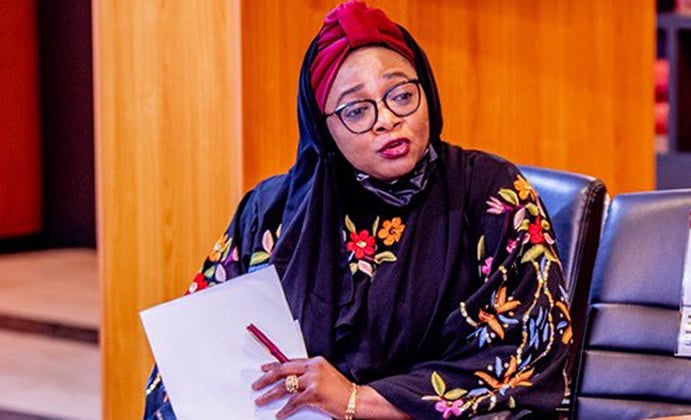Minister of Women Affairs and Social Development, Imaan Sulaiman-Ibrahim, has expressed concern that women in Nigeria’s agricultural sector receive only a fraction—just 30 percent—of total earnings, even though their involvement drives much of the country’s agricultural processes.
Speaking at a National Workshop on Agro-value Chain Capacity Building, hosted in Abuja by the Federal Ministry of Women Affairs and the Organisation of Islamic Cooperation, Sulaiman-Ibrahim highlighted this disparity.
She pointed out that women form the backbone of agricultural work in Nigeria, representing a significant share of the workforce and contributing heavily to overall food production, yet they remain underpaid and face limited access to critical resources. Sulaiman-Ibrahim attributed these challenges to persistent gender gaps within agricultural funding, policies, and investment access.
“Women account for 70% of our agricultural workforce and are responsible for 80% of the nation’s total agro-output. Yet, they receive only a small part of the reward,” Sulaiman-Ibrahim remarked.
“On average, women earn 30% less than men for similar roles. Meanwhile, only 10% of women own farmland, and just 10% can access essential agricultural financing.”
She continued, “While this exclusion may not always be intentional, the impact is unmistakable. Unless gender is factored into policy and investment strategies, such barriers will persist.”
The Minister also discussed the Women Agro Value Expansion Initiative (WAVE), a government effort aimed at uplifting 10 million women across the country’s agricultural value chain, giving them the tools and opportunities to thrive as entrepreneurs.
Emphasizing the need for broad collaboration, Sulaiman-Ibrahim called upon all stakeholders to help realize the initiative’s objectives, noting President Bola Tinubu’s commitment to fostering policies that support women’s participation and growth in agriculture, and by extension, the nation’s development.
Adding to this, WAVE National Programme Manager Abdullah Mohammed disclosed that the initiative is structured to provide women with viable business opportunities, transforming them from subsistence farmers into successful entrepreneurs with the potential for significant wealth creation.
According to Mohammed, the program will reach 10 million women over the next five years, injecting N10 trillion into women-led agricultural activities, with the ambition to generate over N40 trillion in economic value annually.
“The plan is to place N10 trillion in the hands of women in agriculture and have that amount multiply into more than N40 trillion every year,” he said.
“The project involves the federal government, the Ministry of Women Affairs, and key private sector partners such as SMK Farms, Hafaz Farms, and Easy Sales Export, all working together to move women up the agricultural value chain.”
To ensure lasting impact and sustainability, Mohammed explained that the program will provide tailored toolkits that suit each woman’s agricultural specialty. Additionally, ongoing monitoring and guidance from the WAVE team will help participants maximize their success.
“Each region will receive start-up kits suitable for their major agricultural activity—be it grain farming, fisheries, poultry, or livestock. These kits are specifically designed to match the productivity needs of each area,” he noted.
“With every production cycle, the project will reinvest in participants. Every woman who joins this initiative will be supported throughout the five-year period, with the goal of transforming them into the successful agripreneurs we envision. Beyond wealth creation, we aim to embed a strong agricultural culture in Nigerian women and families,” Mohammed added.










